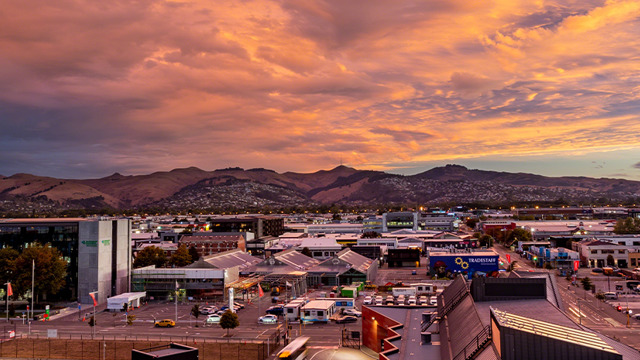Several of our people had the pleasure of attending Aotearoa’s leading infrastructure conference in Ōtautahi - Christchurch earlier this month – Infrastructure New Zealand’s Building Nations 2023.
Below they share some of their main takeaways from the conference and, in particular, discussions around the challenges Aotearoa faces in this critical sector.
1. Act now to deliver long term gain.
Courage is required to undergo once-in-a-generation reform and to pursue the long-term benefits that better and more resilient infrastructure will deliver. While there is no easy solution to the quandary that Aotearoa’s infrastructure sector faces, we need to be bold and start doing. What is started now might not be fit for purpose in 10 years, but being flexible to adjust plans during the process of development to accommodate changing needs and technology is going to be more effective than not starting at all.
2. Pipeline, pipeline, pipeline.
Everyone agrees on the need for a clear project pipeline and greater certainty on the strategy to deliver that pipeline, but how do we get there? Innovative funding sources and mechanisms, improved procurement practices, enhanced collaboration and smarter asset management were posed as key solutions. To start with, consolidating existing 30-year plans across the regions would provide a clearer understanding of national-level implications.
3. Decarbonisation front of mind.
While the conference highlighted that there remain significant challenges to decarbonise our infrastructure, there are also considerable opportunities in this space. For example, opportunities arise in areas such as renewable generation, design and construction, and alternative fuels.
In addition, organisations that take steps to decarbonise are likely to be better positioned to meet the increasing ESG regulatory burden, including domestic frameworks such as the mandatory climate-related disclosures regime and international changes that could impact exports. In order to better facilitate infrastructure’s transition to a low-emissions future, further policy changes are likely to be needed, with particular importance placed at the conference on calibrating resource management settings to enable the extent of renewable generation build required.
4. Regulatory uncertainty a risk to renewables investment.
Demand growth is expected to drive a significant need for new generation capacity over the coming decade and investors desire a clear runway to support that growth. There remain a number of factors that continue to create regulatory uncertainty for developers, including whether Lake Onslow will be there or not, what the offshore renewables regime will be and whether there will be an RMA 2.0 and what the timing is for implementing that. If these uncertainties are not addressed, Aotearoa risks not attracting the international capital required to build out necessary renewable energy projects, and a view was expressed that Aotearoa may well see some developers exiting the market.
5. Clever financing needed.
Long-term debt financing for large infrastructure projects, which spreads the cost of new infrastructure over time, facilitates cost equity between generations and ensures that costs are more closely matched to a user-pay principle. Using the wide range of tools available to expand the infrastructure owner’s funding capacity, whether through the use of long-term project finance, the Infrastructure Funding and Financing Act, or alternative funding and financing models will be important for delivering the required infrastructure investment.
Both government and industry stakeholders share the responsibility for addressing infrastructure challenges and driving positive changes in the sector. It would be great to see some prioritisation of the government sector’s pipeline with the first wave of new projects then brought to the market.
6. De-politicisation is crucial.
Election year brings with it the usual plethora of policy announcements, but these have been more about form than substance, with many subtle tweaks being marketed as wholesale policy changes. One of the key messages to come out of Building Nations 2023 was the need for de-politicisation of project pipelines in the face of ongoing challenges for the sector. Political alignment is particularly important for Aotearoa’s mega projects.
Access this publication in PDF format here.



